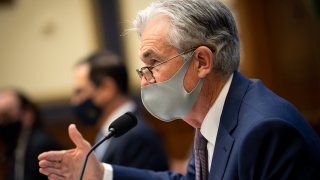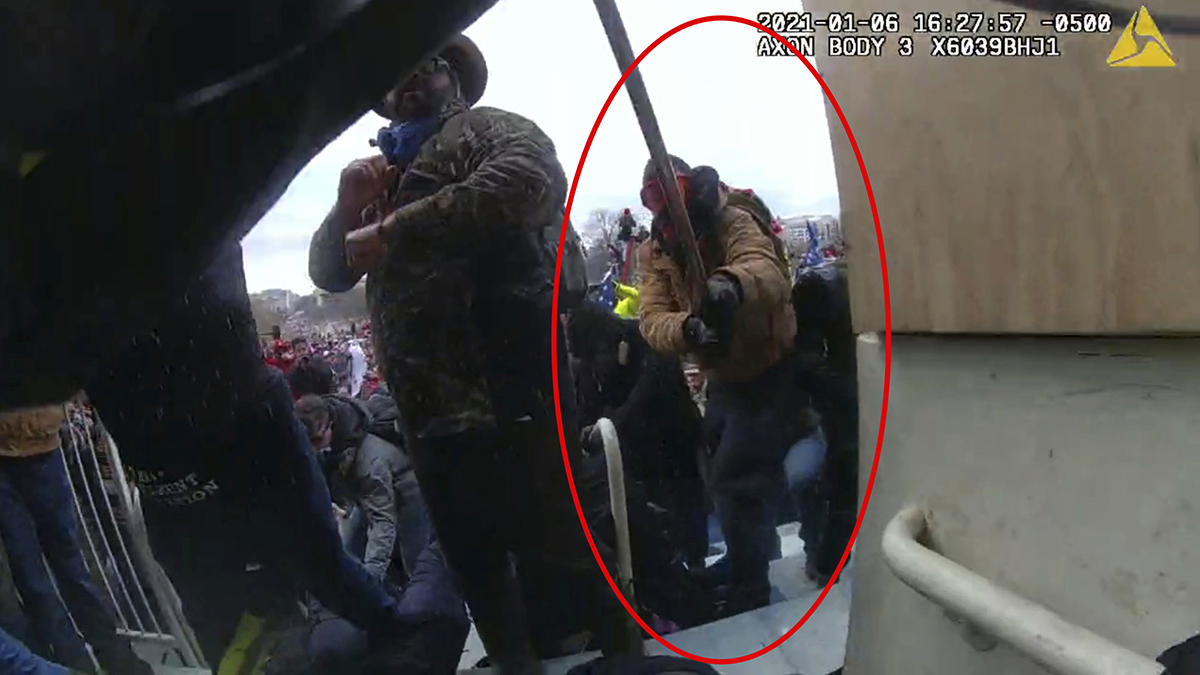
Federal Reserve Chairman Jerome Powell and Treasury Secretary Steven Mnuchin expressed cautious optimism Tuesday that the U.S. economy is rebounding from the pandemic-induced recession with federal support but that more help from the government is likely needed.
Powell told the House Financial Services Committee that he believed the economy was “healing.” Mnuchin, the chief economic spokesman for the Trump administration, proclaimed that the country was in the “midst of the fastest economic recovery from any crisis in history” after the steepest economic plunge since the Great Depression of the 1930s.
Striking a more cautious note, Powell noted that the job market has regained only about half the 22 million jobs that were lost in March and April when the virus flattened the U.S. economy, triggering a recession.
Both officials stressed that major sectors of the economy were still suffering.
Get Connecticut local news, weather forecasts and entertainment stories to your inbox. Sign up for NBC Connecticut newsletters.
Some Republican lawmakers complained that House Democrats were blocking approval of further relief because of their insistence on achieving a larger package than GOP lawmakers are willing to support.
Mnuchin said he was ready to resume negotiations and said the administration would be willing to support stand-alone legislation to boost support through the Paycheck Protection Program, which benefited small businesses.
“We are in a very different situation than we were the last time,” when Congress enacted nearly $3 trillion in emergency financial aid, Mnuchin said. “At that time, the entire economy was shut down.”
U.S. & World
Mnuchin said that further federal aid should be focused on the most damaged sectors of the economy, such as restaurants and the travel industry.
“This time," the Treasury secretary told lawmakers, “it should be much more targeted to industries that are most impacted.”
Tuesday's testimony from Powell and Mnuchin began three days of oversight hearings on the government programs that were enacted last spring to cushion the impact of a devastating recession in which much of the economy was shut down to try to limit the spread of the coronavirus.
That support totaled a record high of nearly $3 trillion and included such measures as economic impact payments of up to $1,200 per individual, enhanced unemployment benefits of $600 per week and a Paycheck Protection Program to encourage small businesses to keep workers on their payrolls.
The Democratic-led House passed additional support. But Senate Republicans have balked at the size of the measure, and both sides have spent months arguing over possible compromise legislation. After some programs expired this summer, President Donald Trump signed executive orders to keep aid flowing, although that effort has produced limited benefit.
Pressed to say what types of aid the Trump administration would support in a new bill, Mnuchin said the administration would favor sending another round of $1,200 in individual payments.
The loans provided to small businesses through a program run by the Small Business Administration and the Treasury Department and can be forgiven as long as much of the money goes to keeping workers on the payroll or rehiring laid-off workers. Some lawmakers said they were hearing that the forms that are needed to gain forgiveness for the loans were too complicated.
Mnuchin said the Treasury and the SBA had worked to make the forms simpler to fill out. He said the administration would be willing to consider some type of blanket forgiveness that would speed up the process if Congress wanted to pass legislation to that effect.



